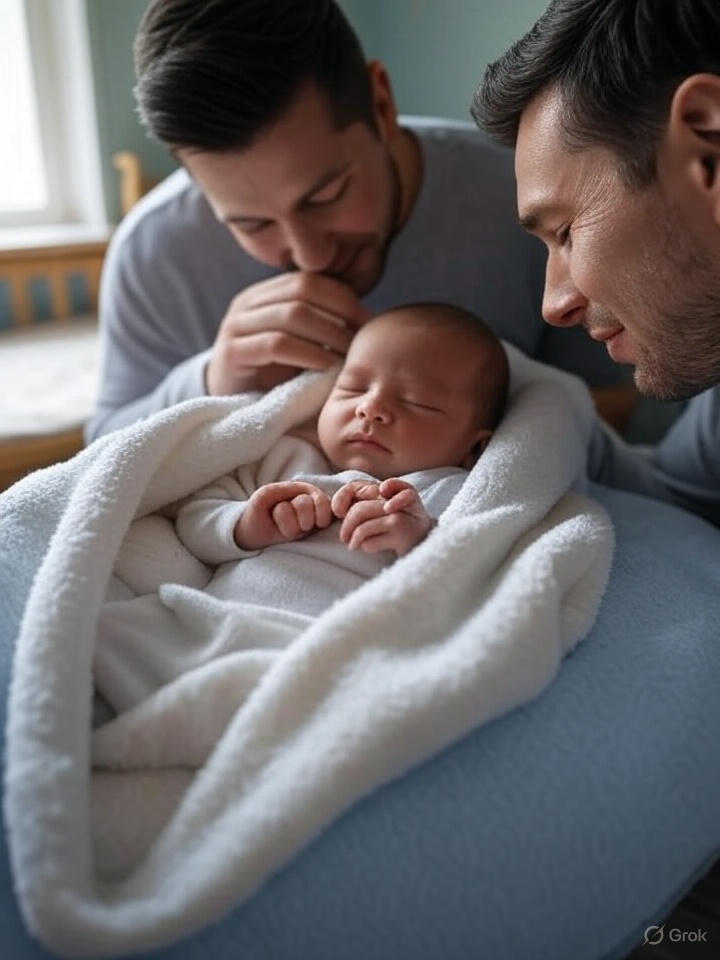As you gaze at your precious little one, you might find yourself wondering: “How long will this magical newborn phase last?” It’s a question that crosses every parent’s mind, whether you’re a first-time parent navigating uncharted waters or an experienced caregiver looking for clarity. The answer isn’t as straightforward as you might expect, and understanding the nuances can help you cherish these fleeting moments while preparing for what lies ahead.
The Quick Answer: Medical Definition vs. Reality
Medically speaking, the newborn phase lasts approximately 28 days or 4 weeks from birth. This definition is universally accepted by pediatric organizations worldwide and serves as the standard timeframe used in medical settings. However, the emotional and developmental reality of when your baby stops feeling like a “newborn” can vary significantly from family to family.
Many parents report that their baby still feels like a newborn well into the second or third month, while others notice distinct changes around the 6-8 week mark. Understanding both perspectives will help you navigate this precious time with confidence and realistic expectations.
Understanding the Medical Timeline: Week by Week
Week 1-2: The True Newborn Phase

During the first two weeks of life, your baby exhibits classic newborn behaviors that pediatricians use to define this phase. According to the American Academy of Pediatrics, newborns during this period:
- Sleep 16-20 hours per day in short bursts
- Feed every 2-3 hours around the clock
- Display primitive reflexes like the Moro (startle) reflex
- Have limited vision (can only see 8-12 inches away)
- Communicate primarily through crying
- Lose up to 10% of their birth weight before regaining it
This period is characterized by your baby’s adjustment to life outside the womb. Every system in their tiny body is adapting to breathing air, digesting milk, and regulating temperature independently for the first time.
Week 3-4: Transitional Period
As your baby approaches the end of the medical newborn phase, you’ll begin to notice subtle but significant changes:
- Increased alertness during wake periods
- More predictable sleep patterns (though still frequent)
- Stronger neck muscles allowing brief head lifting
- Beginning of social awareness – they may start to focus on faces
- Improved feeding efficiency with potentially longer stretches between feeds
By the end of week 4, most babies have regained their birth weight and established more consistent daily rhythms, marking the official end of the newborn classification.
The Emotional Timeline: When Does It Feel Different?
While medical definitions provide clear boundaries, the emotional journey of parenthood doesn’t always align with clinical timelines. Many parents experience what researchers call the “fourth trimester” – a 12-week period of adjustment for both baby and parents.
The 6-8 Week Transformation
Most parents report a noticeable shift around 6-8 weeks when their baby:
- Develops their first social smile (not just gas-related grimaces)
- Makes eye contact and seems to recognize familiar faces
- Shows increased periods of calm alertness
- Begins to vocalize with coos and gurgles beyond crying
- Demonstrates more predictable sleep and wake cycles
This period often coincides with parents feeling like they’re finally getting to know their baby’s personality, moving beyond the survival mode of the early weeks.
The 3-Month Milestone

Many families consider the 3-month mark as the true end of the newborn feeling because:
- Babies can hold their heads up steadily
- Sleep patterns become more consolidated (longer night stretches)
- Feeding becomes more efficient and social
- Crying typically decreases significantly
- Interactive play begins to emerge
Factors That Influence Your Newborn Phase Experience
Birth Circumstances
The circumstances surrounding your baby’s birth can significantly impact how long the newborn phase feels:
Full-term, uncomplicated births typically follow the standard timeline more closely, while premature babies or those requiring special medical attention may extend the newborn feeling well beyond 28 days. If your baby required NICU care, understanding the complete guide for parents about NICU stays can help you navigate this extended newborn period with appropriate expectations.
C-section deliveries may also influence the timeline, as both mother and baby may need additional recovery time, potentially extending the intense bonding and adjustment period.
Individual Baby Development
Every baby develops at their own pace, influenced by:
- Gestational age at birth
- Birth weight and overall health
- Temperament and personality traits
- Feeding method (breastfeeding vs. formula)
- Environmental factors and family dynamics
Some babies are naturally more alert and social from early on, while others take longer to engage with the world around them. Neither pattern is better or worse—they’re simply different developmental trajectories.
Parental Experience and Circumstances
Your experience as a parent also shapes how long the newborn phase feels:
- First-time parents often feel the newborn phase more intensely and for longer periods
- Experienced parents may notice the transition markers more readily
- Support systems can influence how manageable and memorable this phase feels
- Postpartum mental health significantly impacts the perception of time and milestones
Signs Your Baby Is Transitioning Out of the Newborn Phase
Recognizing these developmental markers can help you understand when your baby is moving beyond the newborn stage:
Physical Development Signs
- Improved head control – can lift and turn head while on tummy
- Stronger muscle tone – less floppy, more resistance when handled
- Better coordination – smoother, less jerky movements
- Enhanced vision – can track objects and focus on faces beyond 12 inches
- Developing hand-eye coordination – beginning to reach for objects
Social and Emotional Development
- Genuine social smiles in response to interaction
- Increased eye contact and facial recognition
- Vocalization beyond crying – coos, gurgles, and early “conversations”
- Calm alertness – periods of quiet observation of surroundings
- Response to familiar voices and faces with excitement or calm
Sleep and Feeding Patterns
- Longer sleep stretches – potentially 4-6 hour blocks at night
- More predictable feeding schedule – less constant hunger cues
- Efficient feeding – less falling asleep during meals
- Distinct wake periods – clear times of alertness vs. sleepiness
Cultural and Historical Perspectives on the Newborn Phase
Different cultures have varying perspectives on when the newborn phase ends, offering interesting insights into this universal parental question.
Traditional Practices
Many cultures observe specific postpartum periods that extend well beyond the medical 28-day definition:
- Chinese tradition includes a 30-day “sitting the month” period
- Latin American cultures often observe “la cuarentena” (40 days)
- Many African cultures practice extended periods of mother-baby bonding
- Some Middle Eastern traditions include 40-day observation periods
These cultural practices recognize that the transition out of the newborn phase involves not just the baby’s development, but the entire family’s adjustment to new dynamics.
Modern Research Perspectives
Contemporary research, including studies published in developmental psychology journals, suggests that the “fourth trimester” concept better captures the reality of newborn development. This 12-week framework acknowledges that babies are born before their nervous systems are fully mature, requiring continued external support that mimics the womb environment.
What to Expect After the Newborn Phase
Understanding what comes next can help you appreciate the newborn phase while preparing for upcoming changes.
The Infant Stage (1-12 months)
Once your baby transitions out of the newborn phase, they enter infancy, characterized by:
- Rapid physical growth and motor skill development
- Increased social interaction and personality expression
- More predictable daily routines
- Beginning of solid food introduction (around 4-6 months)
- Enhanced sleep consolidation
Emotional Adjustments for Parents
As your baby becomes less dependent and more interactive, parents often experience:
- Decreased anxiety about fragility and basic needs
- Increased enjoyment of interactive play and communication
- Better sleep leading to improved mental clarity
- Growing confidence in parenting abilities
- Sadness about the passing of the precious newborn phase
Making the Most of Your Newborn Phase
Regardless of how long your specific newborn phase lasts, here are strategies to fully embrace this fleeting time:
Practical Tips
- Take photos and videos daily – changes happen quickly
- Keep a simple journal of milestones and funny moments
- Accept help from family and friends to reduce stress
- Rest when possible – sleep deprivation makes everything harder
- Trust your instincts while staying open to advice
Emotional Preparation
- Embrace the unpredictability – flexibility is key
- Celebrate small victories – every milestone matters
- Connect with other parents for support and perspective
- Practice self-compassion – you’re doing better than you think
- Remember it’s temporary – both the challenges and the sweetness
For families facing additional stress during this period, finding sources of comfort and strength can be invaluable. Some parents find solace in faith-based resources, and tools like Bible verse generators can provide daily encouragement and spiritual support during the demanding newborn phase.
Special Circumstances and Extended Newborn Phases
Some families experience longer newborn phases due to various factors:
Premature Babies
Premature infants may remain in the newborn phase well beyond 28 days chronologically, as their development is often measured from their due date rather than birth date. These babies may:
- Require extended medical monitoring
- Show newborn reflexes and behaviors for months
- Need specialized feeding and care approaches
- Benefit from adjusted developmental expectations
Babies with Special Needs
Some babies with medical conditions or developmental differences may have extended newborn phases requiring:
- Specialized medical care and monitoring
- Adapted feeding and sleeping arrangements
- Modified developmental milestone expectations
- Additional family support systems
Multiple Births
Parents of twins, triplets, or other multiples often report that the newborn phase feels significantly longer due to:
- Increased caregiving demands
- Staggered developmental patterns among babies
- Greater physical and emotional exhaustion
- Extended recovery periods for parents
The Science Behind Newborn Development
Understanding the biological basis of newborn development can provide insight into why this phase has natural boundaries.
Neurological Development
According to research published in Nature Neuroscience, newborn brains undergo rapid development in the first month:
- Neural pathway formation accelerates rapidly
- Sensory processing improves dramatically
- Sleep-wake cycles begin to mature
- Social brain regions start to activate
Physical Growth Patterns
The World Health Organization growth charts show that the first month of life is characterized by:
- Rapid weight regain after initial loss
- Significant brain growth and head circumference increase
- Digestive system maturation
- Immune system development
Common Concerns and Misconceptions
Many parents have worries or misconceptions about the newborn phase duration:
“My baby doesn’t seem like other newborns”
Every baby is unique, and development occurs on a spectrum. Some babies are naturally more alert or social from early on, while others take longer to engage. Both patterns are completely normal.
“I’m not bonding fast enough”
Bonding is a process, not an event. Some parents feel an immediate connection, while others develop deep bonds gradually over weeks or months. There’s no right timeline for emotional attachment.
“The newborn phase is going too fast/too slow”
Time perception during the newborn phase can feel distorted due to sleep deprivation, hormonal changes, and the intensity of new experiences. Both feelings are normal and temporary.
Preparing for the Transition
As your baby approaches the end of the newborn phase, you can prepare for the changes ahead:
Practical Preparations
- Adjust expectations for increased awake time and interaction needs
- Prepare for schedule changes as sleep and feeding patterns evolve
- Plan for increased social engagement from your baby
- Consider returning to work or normal activities timing
- Prepare siblings for changes in baby’s behavior and needs
Emotional Preparations
- Process feelings about the passing of the newborn phase
- Celebrate achievements in surviving and thriving through early parenthood
- Look forward to new types of interaction and connection
- Document memories to preserve this special time
- Maintain perspective that each phase has its own joys and challenges
Supporting Other Parents
Understanding the newborn phase timeline can help you support other parents in your life:
- Offer specific help during the first 4-6 weeks
- Share realistic expectations without being overwhelming
- Validate their experiences whether smooth or challenging
- Respect different parenting approaches and timelines
- Continue support beyond the official newborn phase
Conclusion: Embracing the Journey
The newborn phase, whether it lasts the medical standard of 28 days or extends emotionally to 8-12 weeks, represents one of the most profound transitions in both your baby’s life and your own. While it’s natural to wonder “how long will this last” during the challenging moments, it’s equally important to remember that this phase passes quickly and is irreplaceable.
Every baby moves through this phase at their own pace, influenced by their individual development, family circumstances, and countless other factors. Rather than focusing solely on when it will end, try to find moments of presence and appreciation within the intensity.
The signs that your baby is transitioning out of the newborn phase—the first social smile, increased alertness, better head control, and more predictable patterns—mark not just developmental milestones but the beginning of a lifetime of growth and change. Each phase brings its own rewards and challenges, and the skills you develop during the newborn period will serve you well throughout your parenting journey.
Remember that seeking support, celebrating small victories, and trusting your instincts are all part of successfully navigating this transformative time. Whether your newborn phase feels like it lasts forever or passes in the blink of an eye, you’re providing your baby with the love, care, and attention they need to thrive.
The newborn phase may be temporary, but the bond you’re building and the memories you’re creating will last a lifetime. Embrace the journey, trust the process, and know that you’re exactly the parent your baby needs during this precious and fleeting time.




